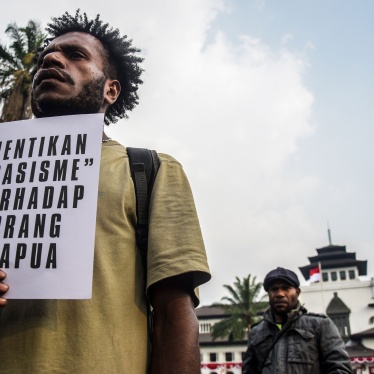When Mexican President Vicente Fox visits President Bush's Texas ranch this week, the two will discuss a range of issues that revolve around law enforcement — illegal drug traffic, border security and migration. But there is another critical area of law enforcement where the United States should collaborate with Mexico: providing documents that could help prosecute crimes from Mexico's "dirty war" in the 1970s and early '80s.
For decades, the Mexican justice system has allowed acts of political violence by government security forces to go unpunished. These include massacres of student protesters in 1968 and 1971 and the torture, execution or forced disappearance of hundreds of armed insurgents and alleged sympathizers during the country's campaign against leftists. Some of these "disappeared" were thrown alive from air force planes over the Pacific Ocean. Others reportedly were forced to swallow gasoline and set on fire.
Last month, Mexico made a major breakthrough when a special prosecutor, appointed by Fox to investigate these crimes, made his first arrest.
Miguel Nazar Haro, a commander of Mexico's defunct secret police force, was captured in Mexico City after two months in hiding. He now faces charges of participating in the forced disappearances of two members of a leftist guerrilla organization in the 1970s. According to the special prosecutor, this is only the first of many arrests to come.
For justice to prevail, however, it is not enough for suspects to be arrested; they must also be fairly tried and, when proved guilty, convicted. And that requires compelling evidence.
This is where the U.S. could help. According to the National Security Archive, a private research institute based in Washington, D.C., the U.S. government possesses thousands of documents concerning the Mexican "dirty war." These documents could be a powerful tool for the special prosecutor as he seeks to establish how Mexico's security apparatus functioned and what role specific individuals played within it.
There is good reason to believe that the U.S. government has information on Nazar. He was an important liaison for the CIA during the 1970s and early '80s. And in 1982, he was briefly arrested in San Diego for alleged involvement in an auto theft ring. He escaped prosecution by posting $200,000 bail and fleeing the country.
Why should the U.S. care about Mexico's efforts to prosecute Nazar? For one, Nazar not only flouted Mexican justice for two months, he's flouted American justice for 22 years. The U.S. has an interest in showing that it will not tolerate anyone who makes a mockery of the law in this way — here or in Mexico.
Another reason is that the U.S. has a vested interest in strengthening law enforcement in its neighbor — its second-largest trading partner and its primary source of immigrants. The cases in which Nazar is charged, as well as the hundreds of others before the special prosecutor, represent the most notorious examples of official impunity in Mexico. Their successful prosecution would go a long way toward building public confidence in the country's justice system and strengthening its rule of law.
A third reason is that the U.S. is facing a crisis of legitimacy in the region. Recent polls show that Latin Americans' perception of the United States has deteriorated dramatically in recent years. This is largely because of widespread opposition to the war in Iraq, which has only intensified as the main justification for the invasion has shifted from Saddam Hussein's elusive weapons of mass destruction to his well-documented mistreatment of the Iraqi people.
This humanitarian rationale is a hard sell in a region where many abusive tyrants received U.S. support during the Cold War. The fact that the first Mexican charged with "dirty war" crimes was an associate of the CIA is one more potent reminder of the double standard the U.S. has applied to human rights.
The special prosecutor will soon file a formal request with the U.S. government for access to documents that can advance these investigations. If the United States is serious about helping other countries deal with abusive government officials, it should prove it by complying with the Mexican request.






